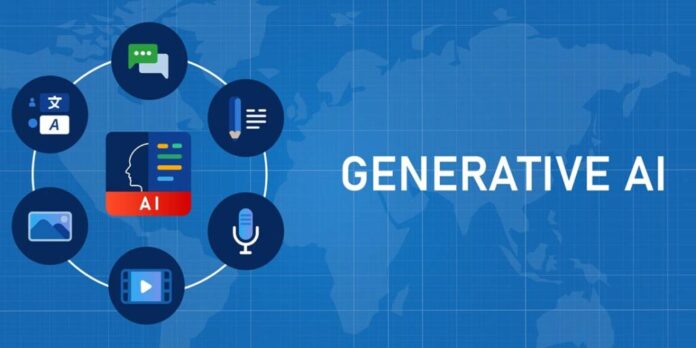I don’t know if you have used Google to search for information in the last day or two. If you have, did you notice any changes? I recently was prompted to try Monica, a new application in search and it has been an eye-opener. Monica is a generative artificial intelligence (GAI) tool. So how is GAI different from AI? I asked Monica to explain, and this is what it wrote:
Generative AI refers to artificial intelligence that can create new and original content, such as text, images, music, and even code. Unlike traditional AI systems designed to perform specific tasks based on predefined rules or data, generative AI models are capable of learning and generating new content that resembles human-generated output.
Could I have stated this better myself? Well, I have written about the evolution of AI neural networks on this site numerous times. I have created these past postings by doing hours of research on the subject. But asking Google assisted by Monica to describe the differences between GAI and AI gave me the above four paragraphs in an instant. That’s why I am convinced that GAI is about to change every aspect of our online lives and it will do it much sooner than any of us suspect.
The title of this posting which compares the impacts of the Internet to that of GAI is one that Google and Monica expounded upon:
Both the Internet and AI have the potential to transform industries and society as a whole. However, there are key differences. The Internet primarily serves as a platform for information exchange and communication, while AI focuses on developing intelligent systems that can perform specific tasks. AI can enhance the capabilities of the Internet by providing advanced data analysis, automation, and decision-making capabilities.
I think Monica is too modest when describing AI as an enhancement to the Internet. A recent article in the MIT Technology Review compares the current emergence of GAI to the dot-com explosion of the early 2000s which I believe is far more apt. This article includes a quote from Alison Smith, Head of Generative AI at the consulting firm Booz Allen Hamilton:
“People are reluctant to imagine what could be the future in 10 years because no one wants to look foolish. But I think it’s [referring to GAI] going to be something wildly beyond our expectations.”
GAI and Internet Data
GAI would not have had the same impact if it had developed before the Internet became the global repository of the world’s collective knowledge, but not necessarily of its wisdom.
The Internet has given GAI wings, to borrow a phrase from an energy drink advertisement seen on television. GAI has trained itself using the vast dataset of the Internet. That is both a blessing and a curse since the Internet contains misinformation, conspiracy theories, and dogma that is anything but wise.
GAIs like ChatGPT from OpenAI, and Bard from Google, require training using large datasets and the wide-open Internet is a great feeding ground for structured and unstructured data. Unvetted data that is fed to a GAI can produce bias and unreliable output. That means humans need to pick appropriate data to teach the GAI before it goes into general use.
GAI and Jobs
Then there is the concern about GAI and human jobs. The MIT article cited earlier describes an encounter between its author and another person while being stuck in an elevator. The person noted that she hated writing reports because she perceived this was not her strength. For the first time, she used ChatGPT to help her. Her manager praised her for the finished report. Did she feel like she was cheating and fess up? She said “Hell no. You do what you can to keep up.”
I posed the question to Google’s Monica, “Does GAI impact jobs?” Here was the answer:
GAI is more likely to augment human capabilities and transform the nature of work. Here are a few reasons why:
- Complementary to Human Skills: GAI excels in tasks that require pattern recognition, data processing, and repetitive operations. However, human workers bring creativity, critical thinking, emotional intelligence, and problem-solving skills that are essential for many jobs.
- Job Transformation: Instead of replacing jobs, GAI is more likely to transform them. By automating routine and predictable tasks, GAI can free up human workers to focus on higher-level cognitive tasks that require human expertise.
- New Opportunities: GAI can also create new job opportunities in fields such as AI development, data science, and machine learning. As GAI becomes more sophisticated, there will be a growing demand for professionals who can work with and manage these technologies.
- Upskilling and Reskilling: The impact of GAI on the job market also depends on the willingness of workers to upskill and reskill. By acquiring new skills and adapting to changing job requirements, workers can remain relevant and employable in the evolving landscape.
If GAI is going to change the job market, it will likely most impact desk jobs. The change GAI will impose will not be like the automation that took jobs away from cottage industries such as what occurred in the early stages of the Industrial Revolution.
It is far more about enhancing and empowering rather than replacing people. There will be job impacts but GAI will also create new types of work. As in the past, however, when new technologies are widely adopted, some disruption of the workforce will occur.
By now here in the 21st century, we should be getting used to living with disruptive changes that come in waves. Disruption is everywhere, in almost every type of business and our personal lives. It has altered the status quo and is fomenting social change. It has made the Gig economy and precarious employment the new reality.
Now GAI is creating the next wave. It has teachers scrambling. It is writing software code. It is finding new drug compounds to cure diseases. How well will we continue to ride it “beyond our wildest expectations” as Alison Smith has stated? Or will it mean a painful adjustment for business and society? We’ll soon see.









